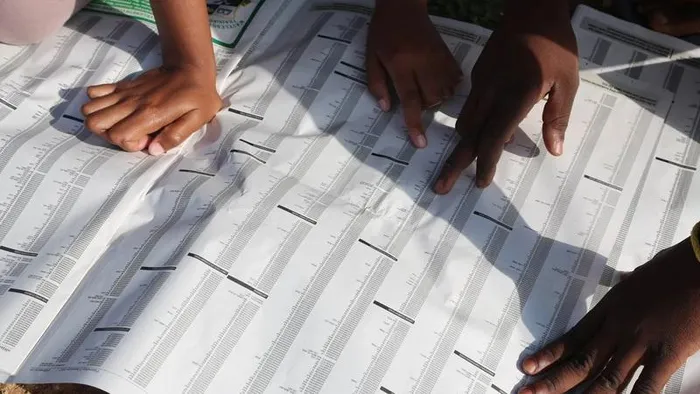
Two men admitted to unlawfully distributing the Mathematics Paper 2 exam, which caused significant disruption for learners and education authorities across the country.
Image: File
Two men have been sentenced by the Johannesburg Magistrate’s Court after pleading guilty to leaking the 2020 matric mathematics exam paper.
The case, which stirred nationwide concern over exam security, involved Themba Daniel Shikwambana, 36, and Thobile Sweetbetter Duze, 48.
Both men admitted to unlawfully distributing the Mathematics Paper 2 exam, which caused significant disruption for learners and education authorities across the country.
The Department of Basic Education first became aware of the leak on November 16, 2020, when a verified copy of the exam paper surfaced on WhatsApp. The exam paper was confirmed to be genuine after the department received reports that learners in Limpopo and Gauteng had access to the test ahead of the scheduled exam date. The early circulation of the exam prompted immediate concern and sparked an investigation by law enforcement.
Hawks spokesperson Lieutenant Colonel Christopher Singo explained that the Serious Commercial Crime Investigation team in Pretoria was tasked with the probe. This led to the arrest of Shikwambana on November 25, 2020, in Orange Farm. At the time, Shikwambana was employed by a printing company in Johannesburg, responsible for producing official exam materials. Authorities suspect he had access to the papers before they were distributed to schools.
The investigation expanded and eventually led to the arrest of Duze on June 10, 2021, in Port Shepstone, KwaZulu-Natal. Both men faced charges related to the theft and unlawful distribution of examination papers. Their actions exposed serious weaknesses in the handling and protection of national exam materials, raising concerns about the safety and fairness of the education system.
On July 23, 2025, the Johannesburg Magistrate’s Court handed down sentences. Both men were fined 100,000 rand or faced 12 months in prison. However, the court suspended half of the fine, 50,000 rand, on the condition that they neither commit similar offences over the next five years. The remaining fine must be paid in monthly instalments of 5,000 rand by April 2026. Additionally, the court issued a fully suspended three-year prison sentence, which will only be enforced if either man commits a similar crime during the suspension period.
This case formed part of a larger scandal in 2020 when the Physical Science Paper 2 was also leaked just hours before the exam was to be written. Both leaks caused widespread confusion and uncertainty for matric learners who were already coping with challenges caused by the Covid-19 pandemic. These incidents undermined confidence in the examination system and led to legal debates on how to proceed with affected exams.
In December 2020, the Gauteng High Court ruled that Education Minister Angie Motshekga did not have the authority to force learners to rewrite the exams. This judgment brought some relief to students, but the damage to the education system’s reputation was already significant.
The leak highlighted vulnerabilities within the exam security framework and triggered calls for tighter controls and more accountability within the Department of Basic Education. Since then, the department has made efforts to improve the security of exam papers to prevent future leaks.
Many learners and educators viewed the leaks as an unfair addition to the difficulties faced during a challenging year marked by school closures and disruptions. The 2020 matric class had to contend with multiple obstacles, and the exam leaks added further pressure and anxiety.
The court’s ruling serves as a warning that exam fraud and theft of official documents will not be tolerated. It is hoped that this decision will deter future attempts to compromise the integrity of South Africa’s education system. Ensuring that examinations remain secure and fair is essential for maintaining trust in the country’s academic standards.